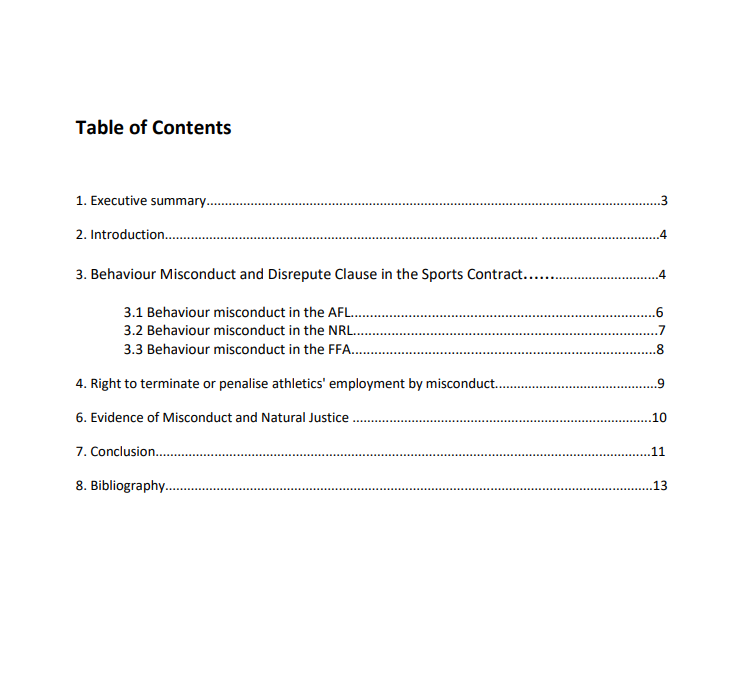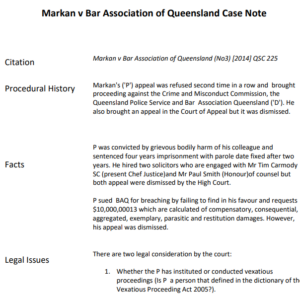Executive Summary
According to research gathered by the National Sport Research Centre (NSRC) in 1991, many sports players (22.3 %) are not aware of the code of conduct. This often leads to negative publicity that damages the reputation of the sports people, the teams, and the sports community. There are two types of misconduct in sport, on field and off field. Unlike general contracts, most sporting contracts incorporate terms or clauses prohibiting athletes from engaging in malicious conduct that would damage the image or reputation of the sport.
The Australian Football League (AFL) aims at ensuring that all AFL players behave in a sportsmanlike manner both on field and off field, and maintain a high standard of professional conduct in public to promote the positive image of the AFL. The National Rugby League (NRL) has strict rules when it comes to the issue of misconduct, such as abuse, discrimination, gambling, harassment, game fixing, bribes, and what not, under the section of particular obligation. Compared to other sports bodies, there are fewer incidences of misconduct by football players reported. The Football Federation of Australia (FFA) expects its players to behave in a good manner at all times to promote and develop the reputation of football in Australia.
Employers are entitled to terminate the contract of an employee for the purpose of protecting the image and value of a club or institution from misconduct by the player. To terminate the contract with a player who has acted inappropriately, the sport community or the team have a burden of proving the breach. At this point, the accused player has a right to be heard before the tribunal. The tribunal cannot omit the process of natural justice before a domestic tribunal, which is an unacceptable error of law since it recognises a player’s fundamental right to present the case for procedural fairness.






Reviews
There are no reviews yet.